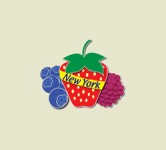Event Details
Date
March 7, 2017
Time
8:30am- 4:00pm
Location
Suffolk County Extension
423 Griffing Avenue, Suite 100
Riverhead, NY 11901-3071
Cost
$25.00 NYSBGA Member
(additional attendee $25.00 ea.)
$50.00 Non-NYSBGA Member
(additional attendee $25.00 ea.)
Host
Cornell Vegetable ProgramLong Island: New York State Berry Growers Association Winter Regional Workshop
March 7, 2017
Walk in space may be available. Pease contact Sandy at CCE Suffolk at 631-727-7850 ext. 316 to verify
As dramatic weather events increase, pest pressure intensifies, and local markets vitalize, New York berry growers are looking for ways to protect their crop and lengthen their season.
Growers and educators are researching techniques for growing berries under cover. These day-long workshop will feature multiple short presentations, interactive activities, and words from growers discussing the newest research in tunnels and exclusion netting.
The price for the workshop is $25 for NYSBGA members and $50 for Non-Members. This includes lunch, refreshments and a comprehensive resource manual describing Protected Culture research and innovations. Additional registrations from the same farm are $25/person.
DEC Credits in categories 1a, 10 and 22 are available.
For information about this site, contact Sandy Menasha
For general information about workshop content, contact Laura McDermott at 518-791-5038 or lgm4@cornell.edu.
Sponsored by: NYS Berry Growers Association, Cornell Cooperative Extension, Cornell University College of Agriculture and Life Sciences, and with funding support from NYS Legislature
General Agenda (PDF; 314KB)



































